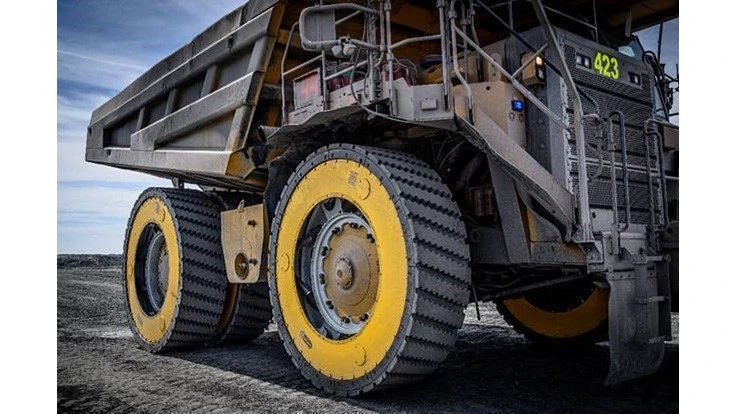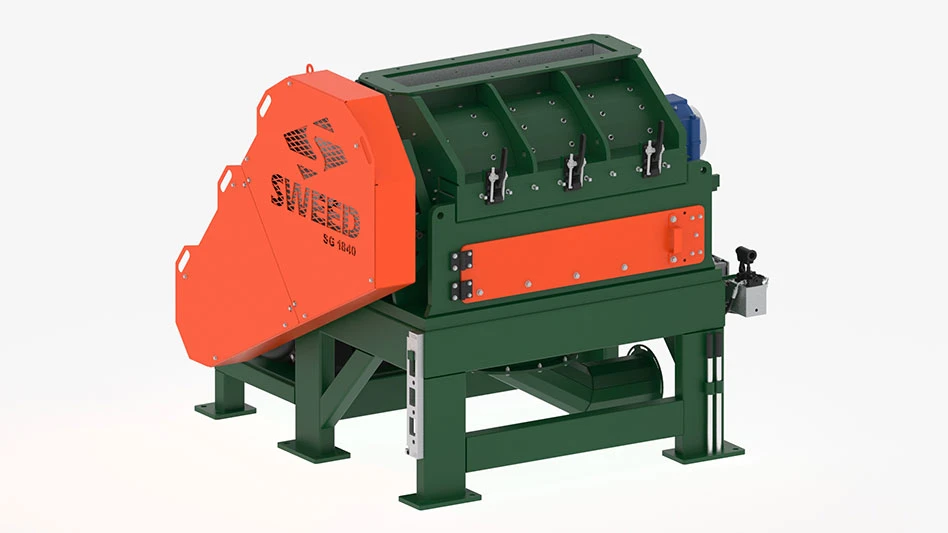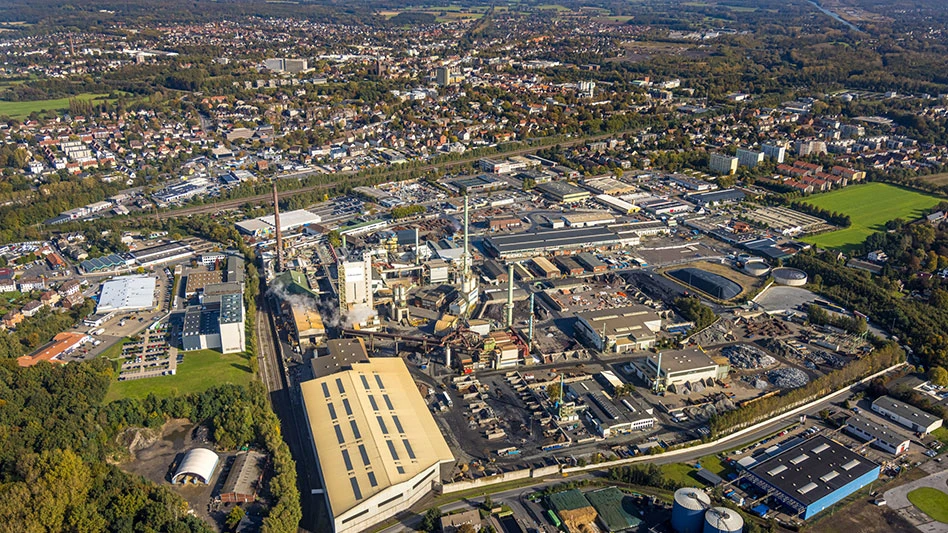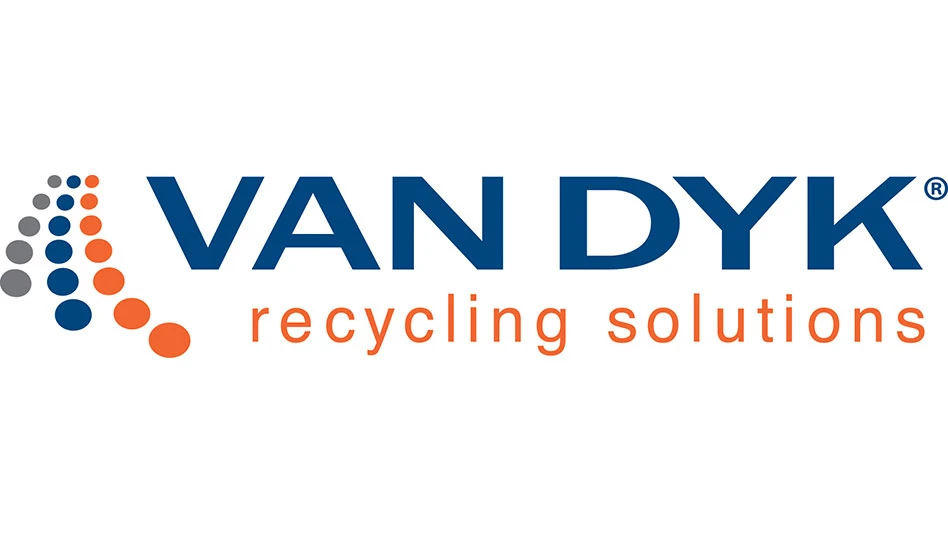
Phoenix-based company Global Air Cylinder Wheels (GACW) says it has raised more than $5 million to help bring to market its Air Suspension Wheel technology and product line. GACW says its steel off-the-road (OTR) tires for heavy equipment have “the potential to completely revolutionize the tire industry by featuring technology that offers a cleaner, cost-effective, stronger and safer alternative” to rubber tires.
Encouraged by the results of a previous $3.3 million campaign, GACW has relaunched its StartEngine campaign to raise additional funds. The company calls its Air Suspension Wheel (ASW) “a patented airless mechanical design constructed primarily of steel with in-wheel suspension.”
The ASW combines an inner steel hub with an outer steel drum that is connected by eight or 12 nitrogen-filled air cylinders and four to six oil-filled dampers that provide suspension and damping. On the outer drum, individually bolt-on steel or polyurethane treads are fitted. The treads can be replaced without removing the wheel, replacing what GACW calls “a time-consuming process that takes up to eight hours with OTR rubber tires.”
Overall, GACW says it has raised more than $5 million from investors so far and the company’s valuation has increased from $27 million to $40 million since May 2022.
“The ASW is so much more than just another wheel,” says Dr. Zoltan Kemeny, president and CEO of GACW. “As opposed to the traditional pneumatic tire providing suspension outside the rim, the ASW suspension is located inside the wheel. Essentially, our wheels become part of the vehicle’s overall suspension system. Our wheels are an effective and viable option to rubber tires. They are cost-efficient, safer, and are better for the environment [for] those industries that rely heavily on tires.”
The ASW technology has been granted eight patents with 52 more pending, GACW says, adding that it has received multiple initial purchase orders and expects to be “fully commercialized within two years,” with initial adoption by mining fleets.
The company foresees GACW orders to soon be received for mining truck and mine site loader wheels. While starting with the largest OTR vehicles, the company says ASW technology could be adopted by smaller scale OTR equipment users or even buses, bicycles and wheelchairs.
GAWC says it is launching operational tests with a drum crusher for three months starting in September at an open pit mine location in Chile, and with a CAT 994 front-end loader for three months starting in October at an open pit mine location in Australia.
“At this point, our plan is to expand our distribution network and really start taking the OTR industry by storm,” Kemeny says. “GACW’s focus is catering to the demand from miners seeking viable tire solutions, and it is a substantial market for us. However, the ASW technology can be applied to all verticals where traditional rubber tires are used, and this market is immense. Our wheels are gaining the traction we need to thrust us into the main market.”
Kemeny says the global OTR tire market is estimated to reach $30 billion in 2022. The overall global tire market is anticipated to reach $322 billion by 2022 .
In terms of ASW benefits compared with rubber tires, GACW cites problems with “overheating tires or dangerous explosions that can be associated with conventional tires.”
Kemeny adds, “Many industries operate under status quo, resistant to change. Companies that are reluctant to innovate will not survive. Those companies that do adopt new technologies and embrace innovation will prosper. Tire use and its negative environmental impact will change inevitably. Governments are starting to mandate change on tire disposal [recycling], and this is already accelerating our technology’s adaptation into the market.”
Rubber tires account for the mining industry’s largest expense after payroll, claims GACW. The company cites “rapid wear and tear caused by impacts, rock cuts, and extreme and uneven loading” as meaning the lifespan of an expensive mining tire is relatively short.
“By contrast, the ASW is durable and designed to have the same lifespan as the vehicle itself, (approximately 10 to 15 years), meaning fewer replacement costs and less time spent swapping out damaged tires,” GACW says.
“One 13,000-pound OTR mining tire can cost over $75,000 and only lasts six to nine months; that is a large expense for a product that does not last,” Kemeny says.
Latest from Recycling Today
- Partnership to bring local recycling instructions directly to consumers
- ReMA notes the benefits of recycled materials on America Recycles Day
- Tozero raises 11M euros in seed funding to ramp up battery recycling efforts
- Critical Mineral Consistency Act passes House
- Alberta recycling group selects Diversys to digitize its beverage container recovery program
- Recycling Today Media Group hires Mallory Szczepanski
- Berry increases recycled PE use by 36 percent
- Bower, Varta join forces on AI-powered scanning for consumer batteries





